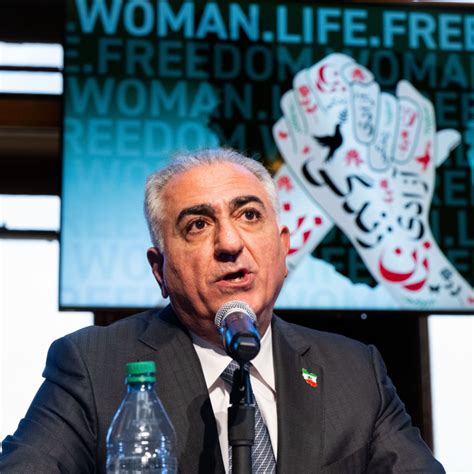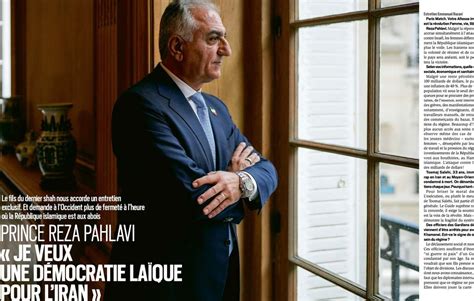
A leaked medical report has ignited controversy surrounding Algerian boxer Imane Khelif, raising questions about her eligibility to compete in the upcoming Olympic Games. The report, allegedly proving Khelif’s ineligibility due to gender-related issues, has surfaced publicly, leading to a storm of debate and accusations of unfair treatment.
The leaked document, the authenticity of which has not been independently verified but widely circulated, reportedly details medical findings that suggest Khelif’s hormone levels exceed permissible limits for female athletes under the regulations set by international sports federations. This revelation has triggered a wave of reactions, ranging from support for Khelif to calls for a thorough investigation into the circumstances surrounding the leak and the validity of its claims.
The controversy comes at a critical juncture, with the Olympic Games looming and Khelif poised to represent Algeria on the world stage. The situation places immense pressure on sporting authorities, who are now tasked with navigating the complex and sensitive issues surrounding gender verification in sports while upholding principles of fairness and inclusivity.
Imane Khelif, a prominent figure in Algerian boxing, has faced similar scrutiny in the past. Prior to the 2023 World Championships, she was declared ineligible due to testosterone levels exceeding acceptable thresholds, a decision that sparked considerable debate and allegations of discrimination. Although she was later cleared to compete, the recent leak has reignited concerns about her eligibility and raised broader questions about the fairness and transparency of gender verification processes in international sports.
The International Olympic Committee (IOC) and various boxing federations have established guidelines for determining athlete eligibility based on hormone levels, specifically testosterone. These guidelines aim to ensure fair competition by preventing athletes with a natural biological advantage from competing in categories that do not align with their physiological characteristics. However, the application of these guidelines has often been met with controversy, with critics arguing that they can be discriminatory and may not adequately account for the diversity of human biology.
The leak of Khelif’s medical report has amplified these concerns, raising questions about the privacy and confidentiality of athletes’ medical information. Legal experts have weighed in, highlighting the potential legal ramifications of such a breach, including violations of privacy laws and potential defamation claims. The incident underscores the need for robust data protection measures within sports organizations and the importance of safeguarding athletes’ personal information from unauthorized disclosure.
The Algerian boxing federation has yet to release an official statement regarding the leaked report, but sources close to the federation have indicated that they are taking the matter seriously and are conducting an internal investigation to determine the source of the leak and assess the validity of the claims. Khelif herself has remained relatively silent, although her social media accounts have been flooded with messages of support and solidarity.
The controversy surrounding Imane Khelif’s eligibility has broader implications for the future of gender verification in sports. As scientific understanding of human biology evolves, sports organizations face the challenge of adapting their guidelines and procedures to ensure fairness and inclusivity while respecting the rights and dignity of all athletes. The case also highlights the importance of transparency and accountability in the application of these guidelines, as well as the need for robust mechanisms to protect athletes’ privacy and confidentiality. The outcome of this situation could potentially influence policy changes and shape the future of how gender verification is handled in international athletic competitions.
Further Details and Context:
The controversy surrounding Imane Khelif’s leaked medical report underscores the deeply complex and often contentious issues surrounding gender verification in elite sports. While the pursuit of fair competition remains the primary objective, the methods used to determine eligibility have sparked heated debates about discrimination, privacy, and the very definition of gender. Understanding the historical context, scientific considerations, and ethical dilemmas is crucial to fully appreciate the significance of this case.
Historical Context of Gender Verification:
Gender verification in sports is not a new phenomenon. It dates back to the mid-20th century when concerns arose about athletes potentially misrepresenting their gender to gain an unfair advantage. Early methods relied on visual inspections and physical examinations, which were quickly deemed inadequate and often humiliating. Chromosomal testing, specifically looking for the presence of Y chromosomes, became the standard in the 1960s. However, this approach also proved problematic, as it did not account for individuals with chromosomal variations, such as those with Turner syndrome (XO) or Klinefelter syndrome (XXY), who might identify as female.
As scientific understanding of human biology advanced, so too did the methods of gender verification. In the 1990s, the IOC introduced polymerase chain reaction (PCR) testing to detect the SRY gene, which is typically found on the Y chromosome and plays a key role in male sex determination. However, this method also faced criticism for its binary approach to gender, which failed to recognize the spectrum of biological variations that exist in humans.
The current focus of gender verification centers on hormone levels, particularly testosterone. Elevated levels of testosterone are associated with increased muscle mass, strength, and endurance, which can provide a significant advantage in certain sports. However, the threshold for acceptable testosterone levels and the methods used to measure them have been subject to ongoing debate.
Scientific Considerations and the Role of Testosterone:
Testosterone is a steroid hormone that plays a crucial role in the development of male characteristics. It is produced primarily in the testes in males and, in much smaller amounts, in the ovaries and adrenal glands in females. Testosterone levels vary widely among individuals, both within and between sexes. Factors such as genetics, age, lifestyle, and medical conditions can all influence testosterone levels.
While testosterone is often associated with masculinity, it also plays important roles in female physiology, including bone health, muscle strength, and libido. The debate surrounding testosterone levels in sports centers on the question of whether athletes with naturally high levels of testosterone should be allowed to compete in female categories, even if they do not identify as male.
Critics of testosterone-based eligibility criteria argue that they are discriminatory and that they fail to account for the complexity of human biology. They point out that there is no clear dividing line between male and female testosterone levels and that many women naturally have testosterone levels that are higher than the average for women. They also argue that other factors, such as genetics, training, and nutrition, can also contribute to athletic performance and that it is unfair to focus solely on testosterone.
Proponents of testosterone-based eligibility criteria argue that they are necessary to ensure fair competition. They contend that elevated testosterone levels provide a significant advantage in many sports and that allowing athletes with naturally high levels of testosterone to compete in female categories would undermine the integrity of women’s sports. They also argue that it is important to protect the safety of female athletes, as some sports can be dangerous, and athletes with higher levels of testosterone may be more likely to cause injuries.
Ethical Dilemmas and Human Rights:
The issue of gender verification in sports raises a number of ethical dilemmas. One of the most pressing is the question of how to balance the competing interests of fairness, inclusivity, and privacy. On the one hand, it is important to ensure that all athletes have a fair chance to compete. On the other hand, it is also important to protect the rights and dignity of athletes who may not fit neatly into traditional binary categories of male and female.
The leak of Imane Khelif’s medical report underscores the importance of protecting athletes’ privacy. Medical information is highly sensitive and should only be disclosed with the athlete’s consent. The unauthorized disclosure of Khelif’s medical report could have serious consequences for her career, reputation, and mental health.
The case also raises questions about the role of sports organizations in regulating gender identity. Should sports organizations have the authority to determine who is eligible to compete in male and female categories? Or should athletes be allowed to self-identify their gender? These are complex questions with no easy answers.
The IOC Guidelines and Their Application:
The International Olympic Committee (IOC) has established guidelines for determining athlete eligibility based on hormone levels, specifically testosterone. These guidelines apply to athletes who are transitioning from male to female and to athletes with differences in sex development (DSDs).
The current IOC guidelines state that athletes who are transitioning from male to female must demonstrate that their testosterone levels have been below a certain threshold (typically 10 nanomoles per liter) for at least 12 months prior to competition. This threshold is based on the average testosterone level for women.
The guidelines for athletes with DSDs are more complex. These athletes must also demonstrate that their testosterone levels are below the threshold, but they may also be required to undergo additional medical evaluations to determine their eligibility.
The IOC guidelines have been criticized by some for being discriminatory and for failing to account for the diversity of human biology. Critics argue that the testosterone threshold is arbitrary and that it does not adequately reflect the range of testosterone levels that are naturally found in women. They also argue that the guidelines place an unfair burden on athletes with DSDs, who may be required to undergo invasive medical procedures to prove their eligibility.
Potential Legal Ramifications of the Leak:
The leak of Imane Khelif’s medical report could have serious legal ramifications for the person or entity responsible for the leak. Depending on the jurisdiction, the leak could violate privacy laws, data protection laws, and medical confidentiality laws.
In many countries, medical information is protected by law, and unauthorized disclosure of such information can result in civil and criminal penalties. The person or entity responsible for the leak could be sued for damages, including compensation for emotional distress, reputational harm, and economic loss.
The leak could also constitute a violation of data protection laws, such as the General Data Protection Regulation (GDPR) in the European Union. The GDPR imposes strict requirements on the processing of personal data, including medical information. Organizations that violate the GDPR can be fined up to 4% of their annual global turnover.
In addition to civil and criminal penalties, the leak could also result in disciplinary action by professional organizations. For example, a healthcare professional who leaked Khelif’s medical report could face suspension or revocation of their license.
The Response from the Algerian Boxing Federation and Imane Khelif:
As of the current reporting, the Algerian boxing federation has not issued an official statement regarding the leaked medical report. However, sources within the federation have indicated that they are taking the matter seriously and are conducting an internal investigation to determine the source of the leak and assess the validity of the claims. The federation is likely to be under pressure to respond to the controversy, both from the public and from international sporting organizations.
Imane Khelif herself has remained relatively silent on the matter. Her social media accounts have been flooded with messages of support and solidarity from fans and fellow athletes. While she has not directly addressed the leaked report, her silence may be a strategic decision to avoid further inflaming the situation. It is possible that she is consulting with legal counsel and preparing a formal response.
The Broader Implications for Gender Verification in Sports:
The controversy surrounding Imane Khelif’s eligibility has broader implications for the future of gender verification in sports. The case highlights the ongoing challenges of balancing the competing interests of fairness, inclusivity, and privacy.
As scientific understanding of human biology evolves, sports organizations face the challenge of adapting their guidelines and procedures to ensure fairness and inclusivity while respecting the rights and dignity of all athletes. The case also underscores the importance of transparency and accountability in the application of these guidelines, as well as the need for robust mechanisms to protect athletes’ privacy and confidentiality.
The outcome of this situation could potentially influence policy changes and shape the future of how gender verification is handled in international athletic competitions. It is possible that the IOC and other sporting organizations will revisit their guidelines and procedures to address the concerns raised by this case. This could include exploring alternative methods of determining eligibility that are less invasive and less discriminatory.
The case also highlights the need for greater education and awareness about gender diversity in sports. Many people still hold outdated and inaccurate beliefs about gender, which can lead to discrimination and prejudice against athletes who do not fit neatly into traditional binary categories. By promoting education and awareness, sports organizations can help to create a more inclusive and welcoming environment for all athletes.
Frequently Asked Questions (FAQ):
-
What is the controversy surrounding Imane Khelif about?
- The controversy stems from a leaked medical report allegedly proving Imane Khelif’s ineligibility to compete in the Olympics due to gender-related issues, specifically hormone levels exceeding permissible limits for female athletes. This has sparked debate about her eligibility and the fairness of gender verification processes.
-
Why was Imane Khelif previously deemed ineligible for the 2023 World Championships?
- She was declared ineligible due to testosterone levels exceeding acceptable thresholds according to the regulations in place at that time. Although she was later cleared, this incident resurfaced concerns about her eligibility with the recent leak.
-
What are the current guidelines for gender verification in sports based on?
- Current guidelines primarily focus on hormone levels, particularly testosterone. International sports federations, including the IOC, have set thresholds to ensure fair competition by preventing athletes with a natural biological advantage from competing in certain categories.
-
What are the potential legal ramifications of leaking Imane Khelif’s medical report?
- The leak could violate privacy laws, data protection laws (like GDPR), and medical confidentiality laws, potentially leading to civil and criminal penalties. The responsible party could face lawsuits for damages, reputational harm, and disciplinary action from professional organizations.
-
What is the Algerian boxing federation’s response to the leaked report?
- While no official statement has been released, sources within the federation indicate they are taking the matter seriously and are conducting an internal investigation to determine the source of the leak and assess the validity of the claims. The federation is expected to provide a more formal response soon.
Conclusion:
The Imane Khelif case is more than just a sports controversy; it is a microcosm of the broader societal debates surrounding gender, identity, and fairness. The leak of her medical report has not only raised serious ethical and legal questions but has also highlighted the urgent need for a more nuanced and compassionate approach to gender verification in sports. As the IOC and other sporting organizations grapple with these complex issues, it is essential that they prioritize the rights and dignity of all athletes while striving to create a level playing field. The future of gender verification in sports depends on a commitment to transparency, inclusivity, and a willingness to adapt to evolving scientific understanding. The world watches, hoping that fairness and respect prevail in this sensitive and high-stakes situation.









